Got a new parrot? Congratulations on beginning a great journey of friendship! Now, gear up to gain your bird’s trust and maintain it.
While birds are all-around intelligent and pretty affectionate pets, it does take some time for a pet bird to trust its owner and to show that trust in them openly. As a new parrot owner, your bird’s behavior might confuse you, and you may not know whether it trusts you or is wary of you. However, there are several signs your parrot trusts you, and over time you’ll know all of them well.
Signs your Parrot trusts you and likes you
1. Cuddling
Although parrots are affectionate birds that love being close to their owners, they take some time to get into their comfort zone. So, when your parrot starts seeking physical closeness with you by settling on your arm, shoulder, and is unafraid to cuddle, you know it trusts you.
Sometimes, they request to be cuddled by digging into your hair and your clothes, or moving toward your hand in order to be close to you. This is a very clear sign your bird likes you.
2. Preening themselves
It is natural for parrots to engage in preening since it is a natural grooming instinct and they need to preen regularly to keep their feathers in top condition. If your parrot preens in front of you, it is one of the signs it trusts you since they don’t preen in situations where they feel unsafe.
A parrot that feels unsafe will be perched upright and looking alert instead of preening itself, ready for fight or flight.
3. Preening you
This is somewhat similar to cuddling. If your parrot trusts you, apart from preening itself, it will also engage in preening you. It may gently nuzzle against your hand, the hem of your clothes, and sometimes your ears, running its beak along your skin or hair. It means the bird wants to groom you and considers you close to itself.
In the wild, birds that get along well with each other engage in what is known as allopreening, which refers to the act of preening another bird’s feathers. If your parrot preens you, it is a clear sign that it trusts you and wants to keep your “feathers” in top condition too!
Below is a video of Bibi preening my ear. He sometimes gets so enthusiastic about it that it hurts a little bit!
4. Flapping wings
When a parrot flaps its wings, there can be a variety of reasons. Many young birds flap their wings while still remaining perched on the spot as a form of exercise to build up wing muscle.
However, flapping wings and vocalizing at the same time when it sees you can mean that it is likely seeking your attention or showing happiness. Again, this is a mark of trust from the bird as it shows that it likes you and wants to interact with you.
5. Wagging tail
When a parrot wags its tail, it can be for different reasons. Akin to dogs, parrots, too, tend to wag their tails to show excitement and happiness when they see their owners. However, unlike dogs that wag their tails back and forth several times, parrots usually give a brief shake of their tail feathers back and forth for a couple of seconds only.
Among the many signs your bird trusts you, a wagging tail is a clear indication that your parrot is excited to see you and is anticipating interacting with you.
What can sometimes be confusing is that parrots also wag or flip their tail feathers when they are feeling annoyed! Hence, it is important to observe whether it exhibits any other the other signs of trust listed here in addition to wagging its tail, to know if it is in a positive mood or not.
6. Bowing head
In the world of parrots, a bowed head is a sign of trust and vulnerability, since the bird is exposing the back of its head and neck to you while bowing. This is sometimes accompanied by closed or half-closed eyelids as it is getting ready to receive relaxing neck scratches from you. If your parrot bows its head to you, it is showing you it trusts you in its vulnerable state.
If this happens, you can attempt to stroke the feathers gently in the opposite direction of the feathers’ growth. This is akin to giving your bird a nice little massage and they would most definitely appreciate you for it!
7. Eye pinning
If you have ever seen some parrots dilating (enlarging) and constricting (making smaller) their pupils quickly, this is a phenomenon referred to as eye pinning. Depending on the surroundings and circumstances they are in, it could be an indication of fear, excitement, or love. In certain species such as Indian ringneck parakeets, African greys, and parrotlets, it is easy to observe their pupils change in size when something happens in their surroundings.
It is important to observe their body language as a whole, as eye-pinning could also mean that they are ready to attack! If your bird is showing other signs of defensiveness such as raised neck feathers, growling, or lunging out at you with its beak, it means it is not happy!
However, if it makes gently cooing sounds with a relaxed posture while eye pinning, then it could mean that it is happy and enjoying itself in your presence.
8. Hanging upside down
In general, parrots do not hang upside down as a form of habit. One exception is the hanging parrot, which can even sleep while hanging upside down. For most other parrots, hanging upside down is a vulnerable position and they usually do that when being playful and goofy.
If you observe your parrot climbing around and hanging upside down when you are around, it is definitely an adorable sign your bird trusts you and is eager to play with you.


9. Lying on back
Some parrots like caiques and conures like to lie on their backs while playing with you or with a toy. Some baby conures also tend to lie on their backs while sleeping, although it is not known why they do this. Birds are at their most helpless and exposed when they lie on their back. Most parrots won’t do this in front of you unless they trust you absolutely and knows you won’t harm them.
Thus, when your parrot allows you to see and approach it while it lies on its back, it clearly has great trust in you.
However, this also highly depends on each parrot’s personality. Due to the high state of vulnerability in this position, some parrots may not be willing to lie on their backs even if they trust you very much, so don’t be disappointed if your parrot refuses to do this!

10. Beak grinding
If you hear a strange crunching sound coming from your parrot, and notice that it is moving its lower beak against the upper one but not eating anything, it is most likely beak grinding. Many first-time bird owners are alarmed when they hear this strange sound, but more often than not, there is nothing to worry about!
Grinding their beaks is something parrots do before they fall asleep, or are feeling relaxed and sleepy. You may sometimes see them gradually closing their eyes while they grind their beaks. If your parrot is grinding its beak in your presence, it means it is relaxing, which is definitely one of the signs your bird trusts you.
11. Beak rubbing
With people they feel safe and comfortable with, parrots tend to rub their beaks against the person to show affection and trust. This behavior looks as if the parrot is trying to clean its beak, and it might do it on your shirt or your skin. It is sometimes thought that beak rubbing is a parrot’s way of marking its “belongings”, so if your parrot rubs its beak on you, it can be a sign that it likes you and wants you for itself!
12. Reaching out to you with its beak
Be careful when your parrot does this! There can be several reasons behind a parrot reaching out to you with its beak. If you haven’t had the bird for long, or it is feeling unsafe or stressed currently, it might be reaching out as a form of self-defense, trying to warn you to stay away from it – so be careful if that seems the case. If the bird is rested, fed, and safe, or wants to play with you, it will reach out with its beak as a gesture of trust, among the definite signs your bird trusts you.
13. Nibbling you gently with its beak
While biting is definitely not to be encouraged and is a definite sign your bird is warning you to stay away, gentle nibbling and nipping can be friendly and fun. This also differs between baby or young birds, versus adult birds. Some young birds are learning their way around the world and may be curious about interacting with you. They often do this via “beaking” or gentle nibbles. This is completely harmless as they just want to have a feel of your skin and perhaps test boundaries a bit.
For most adult birds, gently nibbling your skin can be a way of preening you (as mentioned above), or a way of playing with you, which is a definite sign your bird trusts and likes you. If gentle nibbling gradually becomes harder, it could turn into a bite. If you start to feel that the nibbling is getting stronger, you can withdraw your hand and tell your bird a firm (but not fierce) “no”.
14. Relaxed posture
This one’s simple enough. If your bird trusts you, its posture is going to be relaxed and at ease, unless the particular situation or environment is bothering it. When your parrot is relaxed around you, it clearly means it trusts you. A relaxed parrot is usually playing or nibbling at things, preening, with feathers either in “neutral” or fluffy mode. It might grind its beak or even close one or both eyes.
Sometimes, while relaxing, the parrot might stand only one foot and withdraw the other foot into its feathers to rest it. Conversely, a tense parrot tends to have eyes wide open, unblinking, with feathers pressed flatly against its skin (making it look skinny), and is standing on both feet.


15. Closing one eye (usually the one towards you)
When a parrot is relaxing, it would sometimes close both its eyes, but sometimes it closes only one eye. This might not always be obvious to you as the parrot may be sitting with one side of its face facing toward you and the other side facing away from you. If you noticed your parrot closing only one eye, check which eye is facing toward you.
Closing the eye that faces you is a sign your parrot trusts you as it means that there is nothing about you that it needs to be wary of. If the eye that faces away from you is open, it is paying attention to any potential signs of danger in its surroundings.
16. Fluffed feathers
This one’s pretty contextual, so give yourself some time to figure it out. Fluffed feathers can mean the bird is feeling threatened or angry and can be aggressive, or it can be a sign of friendliness and affection. Over time, you will be able to tell which one it is a sign of.


17. Dancing or showing excitement
One of the most common signs your bird trusts you is when it displays signs of excitement by moving its head, wings, and feet around as if it is dancing. It means the bird is happy around you and trusts you enough.
18. Regurgitation (or the “head wobble”)
Regurgitation sounds gross, but a bird mostly regurgitates its food in order to feed its young ones- which means that if your parrot does this, it not only trusts you, it loves you very much as well, as it wants to feed you. Regurgitating is probably one of the highest compliments a bird can ever give to you! It means it considers you its mate.
Generally, though, it is not great to encourage this type of behavior as it could cause health issues or excessive imprinting on humans.
19. Showing mating display toward you
When a parrot displays itself for a prospective mate, it has to be at its most comfortable and is aiming to attract the mate as well. Thus, if your parrot lets you see its mating display, it is an ultimate sign of trust and shows that the bird is highly comfortable with you. Different birds show different types of mating displays, so it helps to know which types your bird makes in order to recognize mating behavior!
20. Following you around
Your parrot following you around means that the bird is comfortable around you and feels completely safe with you. It wants to be with you often, and it prefers your company the most, which shows that it trusts you entirely. When it follows you around, it could be curious to observe you in order to see what you’re doing. It means the bird considers you dear to it, trusts you, and wants to be included in your day-to-day activities.
21. Calling out for you
In the wild, parrots often call out to mates and to each other within their flock to let flock mates know their location, and whether they are alright. This is called “contact calling”. Instinctively, they do the same at home if they consider you as part of the flock, which means that they trust and like you, and accept you as family.
Calling out for you means it wants to be with you, wants you to know where it is, and whether you are near or far away. It definitely helps to reassure them if you whistle or call back, or sometimes it could make them even more excited to want to be with you!
22. Imitating you
Parrots are highly intelligent birds, so imitation is one of their strong traits. In particular, if your parrot imitates you, it wants to be a part of your life and all that you do. As the saying goes, “imitation is the sincerest form of flattery”, and perhaps it can also be applied to a parrot! Imitation is its way of wanting to be closer to you, to show adoration and trust.
23. Flying to you
Parrots only fly to those they trust and feel close to. In the wild, parrots fly away from danger and sources of threat, and towards whatever feels safe. So, when your parrot starts flying close around you and flies readily to you whether or not you call it, it means it trusts you and is completely safe coming to you anytime. Many bird owners have successfully trained their parrots to “recall” (fly back to them) after building up this trust.
They may fly to you when you walk away from them as they are curious about what you are going to do, or where you are going. Parrots are highly curious creatures!
A Final Note
So, these were the various signs your parrot trusts you, and now, learning about them, you’ll know better how to tell if your parrot is comfortable around you or if it still needs a little time. Here are some of the main things to remember-
- If the parrot follows you around, imitates you, and observes what you’re doing often, it wants to be with you and trusts you a lot.
- Be wary, especially in the beginning, when you haven’t bonded with the bird very well. If it comes close with its beak out, it may try to nip in self-defense. Pushing boundaries further could either cause the bird to run away or attack. Gauge its mood and the current situation before encouraging it.
- Observing a combination of different body language signs may be necessary to interpret a parrot’s body language in many of the situations mentioned above.
Parrots are excellent, rewarding companions to have around, but effort and patience are required on our part to learn about them and to build up familiarity. Don’t fret if your parrot takes some time to trust you completely- be patient, show it some love, and it will ultimately trust you!
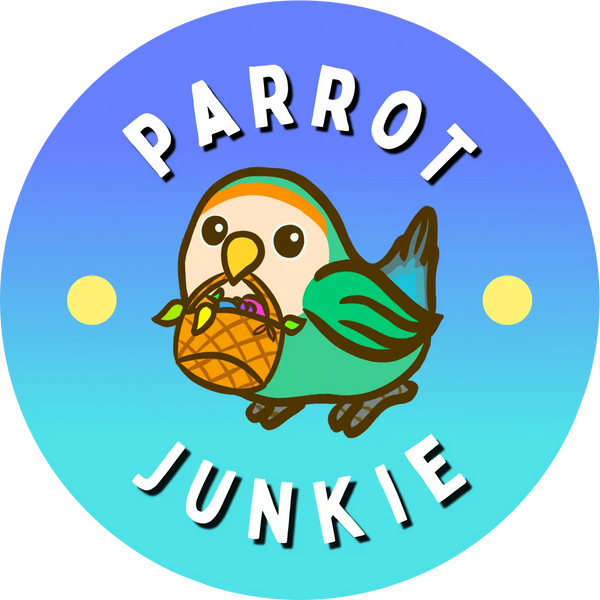

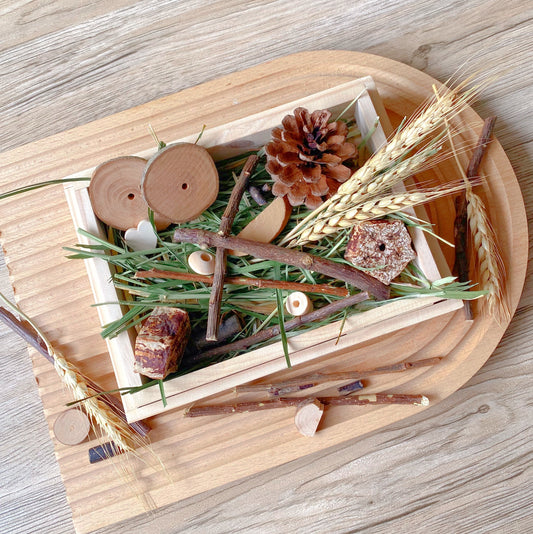
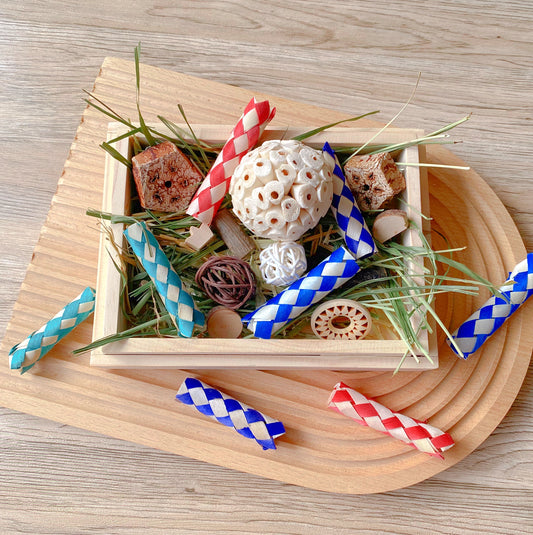
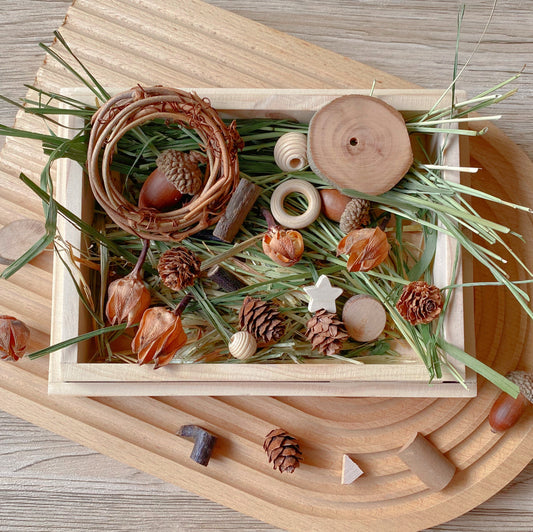
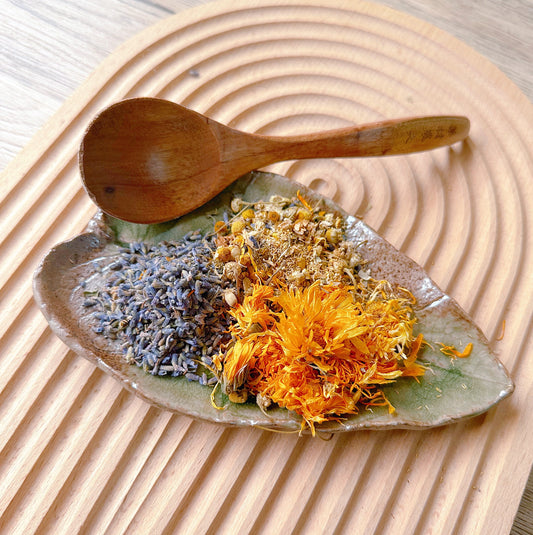
5 comments
Thank you for this. So what you are saying is that my African Grey really trusts me but how do I stop him/her for trying to make with my hand every time I get close to him?
It helped me very much.My parrots shows all these sign.It helped me to show how much my parrots love me.
It helped me very much.My parrots shows all these sign.It helped me to show how much my parrots love me.
Very informative 🦜☺️
Everything that you mentioned was vital in point